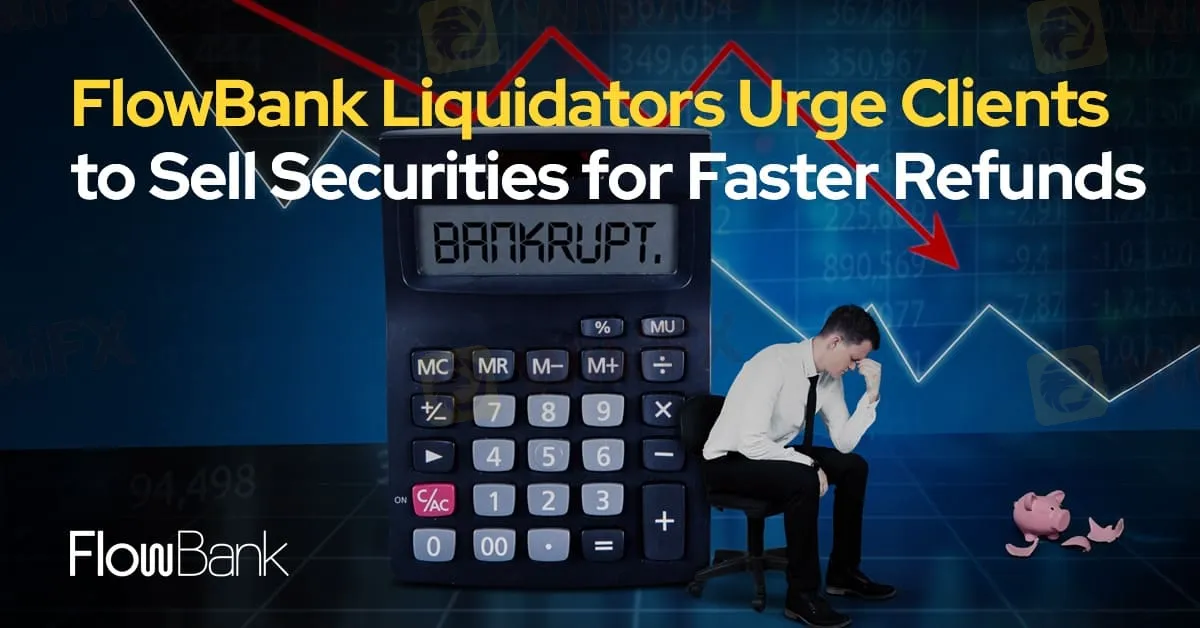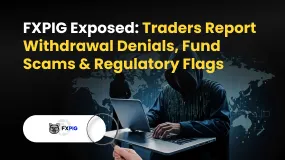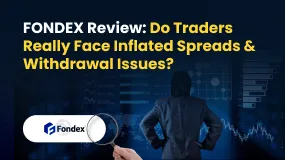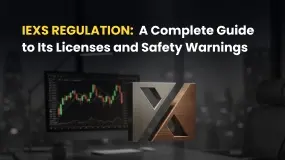简体中文
繁體中文
English
Pусский
日本語
ภาษาไทย
Tiếng Việt
Bahasa Indonesia
Español
हिन्दी
Filippiiniläinen
Français
Deutsch
Português
Türkçe
한국어
العربية
FlowBank Liquidators Urge Clients to Sell Securities for Faster Refunds
Abstract:Walder Wyss, the Swiss law firm overseeing the liquidation of bankrupt neobank FlowBank, has encouraged former clients to sell their securities held in accounts to expedite the refund process. Clients are able to log in to the FlowBank platform and complete the sale of their securities until 15th November 2024, after which the platform will no longer facilitate such transactions

Walder Wyss, the Swiss law firm overseeing the liquidation of bankrupt neobank FlowBank, has encouraged former clients to sell their securities held in accounts to expedite the refund process. Clients are able to log in to the FlowBank platform and complete the sale of their securities until 15th November 2024, after which the platform will no longer facilitate such transactions. This initiative aims to simplify the refund procedure and provide quicker access to funds, with the sale of assets seen as more efficient than transferring securities directly to clients.
The liquidators emphasized that direct transfer of securities to clients would involve significant time and cost. In contrast, converting securities to cash is a faster and simpler method, allowing for smoother disbursement of funds. Clients who opt for the sale can expect their refunds to be processed in a timely manner, while those who do not may face additional delays in receiving their assets.

Once a client‘s positions are sold, the resulting cash will be credited to a separate account before being transferred to a bank account designated by the client. The funds will be sent in either EUR or CHF, depending on the client's choice, and Walder Wyss indicated that these transfers will typically occur within a few days of the sale. However, during the first two weeks of the platform’s launch, manual or automated securities transfers will not be available, as the focus will be on completing sales.
FlowBanks downfall came after the Swiss financial regulator FINMA forced the company into bankruptcy in mid-June 2024. FINMA cited concerns that FlowBank had failed to maintain the minimum required capital for its business operations, with signs that the institution was over-indebted. Founded in 2020 by Charles-Henri Sabet, the company initially focused on providing banking and investment services before shifting its attention toward promoting online CFD trading, similar to Sabet's previous venture, London Capital Group (LCG).
FlowBank's minority owner, crypto investment company CoinShares, held a 30% stake in the neobank at the time of its collapse. While liquidation efforts continue, the liquidators are actively seeking a buyer for LCG, which remains a key unresolved aspect of the process.
This decisive move by Walder Wyss is seen as crucial for ensuring that FlowBanks clients can recover their assets without unnecessary delays, as the liquidation process progresses. Clients are advised to act promptly and take advantage of the streamlined solution to avoid prolonged waiting periods.

Disclaimer:
The views in this article only represent the author's personal views, and do not constitute investment advice on this platform. This platform does not guarantee the accuracy, completeness and timeliness of the information in the article, and will not be liable for any loss caused by the use of or reliance on the information in the article.
Read more

FXPIG Exposed: Traders Report Withdrawal Denials, Fund Scams & Regulatory Flags
Do you face massive losses due to astonishing spreads at FXPIG? Have you witnessed multiple trade executions by the Georgia-based forex broker even though you wanted to execute a single order? Has this piled on losses for you? Is the FXPIG withdrawal too slow? Maybe your trading issues resonate with some of your fellow traders. In this FXPIG review article, we have shared these issues so that you can introspect them thoroughly before deciding on the best forex trader.

Does WealthFX Generate Wealth or Losses for Traders? Find Out in This Review
The name WealthFX sounds appealing for all those wishing for a rewarding forex journey. However, behind the aspiring name are multiple complaints against the Comoros-based forex broker. These trading complaints dampen the broker’s reputation in the forex community. In this WealthFX review article, we have shared some of these complaints here. Take a look!

FONDEX Review: Do Traders Really Face Inflated Spreads & Withdrawal Issues?
Does FONDEX charge you spreads more than advertised to cause you trading losses? Does this situation exist even when opening a forex position? Do you witness customer support issues regarding deposits and withdrawals at FONDEX broker? Does the customer support official fail to explain to you the reason behind your fund loss? In this article, we have shared FONDEX trading complaints. Read on!

IEXS Regulation: A Complete Guide to Its Licenses and Safety Warnings
When choosing a broker, every trader's biggest concern is safety and trust: is it regulated? For IEXS, the answer isn't simply YES or NO. While the company says it's regulated by trusted authorities, looking closer shows a complicated and worrying situation with mixed evidence and serious risks. What they claim on the surface doesn't match up with official warnings, license problems, and many bad user experiences. This article gives you a detailed, fact-based look into IEXS regulations, breaking down their official licenses, what their trading platform is really like, and real stories from traders who have used it. Our goal is to give you the facts so you can make a smart decision about keeping your money safe.
WikiFX Broker
Latest News
Trillium Financial Broker Exposed: Top Reasons Why Traders are Losing Trust Here
FIBO Group Ltd Review 2025: Find out whether FIBO Group Is Legit or Scam?
Amillex Withdrawal Problems
Is INGOT Brokers Safe or Scam? Critical 2025 Safety Review & Red Flags
150 Years Of Data Destroy Democrat Dogma On Tariffs: Fed Study Finds They Lower, Not Raise, Inflation
CQG Partners with Webull Singapore to Power the Broker’s New Futures Trading Offering
【WikiEXPO Global Expert Interviews】Ashish Kumar Singh: Building a Responsible and Interoperable Web3
Trump: India\s US exports jump despite 50% tariffs as trade tensions ease
IEXS Review 2025: A Complete Expert Analysis
CySEC Flags 21 Unauthorized Broker Websites in 2025 Crackdown
Currency Calculator




